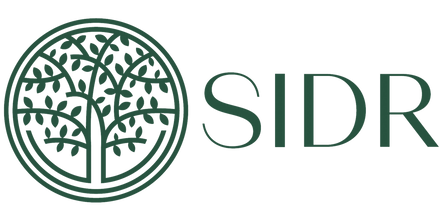
Common Equine Wound Issues and How Hydrogels Can Help
When it comes to caring for our equine companions, understanding common wound issues is essential for every horse owner. Horses are inherently active (and accident-prone) creatures, often finding themselves in situations where cuts and abrasions occur. Whether it's due to playful kicks from pasture mates, sharp fencing, or the rigors of training, wounds can happen unexpectedly. Knowing how to manage these injuries effectively is crucial for ensuring quick healing and minimizing complications.
Understanding Equine Wound Types
Equine wounds can be categorized into several types, each requiring specific care. Superficial wounds, often minor, can typically be treated at home. These include scrapes and small cuts that do not penetrate deeply into the skin. However, deeper wounds, such as lacerations or puncture wounds, pose greater risks. They can involve not only the skin but also underlying muscles, tendons, or ligaments. Such injuries may require veterinary attention to reduce the risk of infection and ensure proper healing.
Another common issue is gastrointestinal wounds, which can occur due to foreign objects ingested by the horse or trauma to the abdominal area. These situations can lead to severe complications if not addressed swiftly. Understanding the nature of the wound is the first step in providing effective treatment and care.
The Role of Hydrogels in Wound Healing
As horse owners become more aware of the benefits of natural ingredients, the use of wound hydrogels has gained popularity. Hydrogels are water-based formulations that provide a moist environment for wounds, which is critical for optimal healing. They facilitate the natural healing process by keeping the wound hydrated, reducing the risk of scabbing, and preventing the formation of hard crusts that can impede recovery.
Natural ingredients found in these hydrogels, such as aloe vera, hyaluronic acid, and chitosan, play a significant role in promoting healing. Aloe vera, known for its soothing and anti-inflammatory properties, helps reduce pain and discomfort while accelerating skin regeneration. It also possesses antimicrobial properties, which can help protect the wound from infection.
Hyaluronic acid is another powerful ingredient that supports wound healing by promoting tissue hydration and elasticity. It aids in cell migration, which is crucial for the healing process. By maintaining an optimal moisture level, hyaluronic acid encourages the growth of new tissue, leading to faster recovery.
Chitosan, derived from natural shells of crustaceans, is particularly noteworthy for its ability to absorb moisture and create a protective barrier over wounds. This ingredient not only helps mitigate microbial contamination but also supports the body's natural healing mechanisms. Its effectiveness in managing wounds has been well-documented in various studies, making it a highly regarded component in equine wound care.
Optimizing Wound Care with Natural Solutions
While the use of hydrogels is beneficial, it is essential to incorporate a holistic approach to wound care. Ensuring that the horse's diet is rich in nutrients will also promote healing from within. Essential vitamins and minerals, particularly those involved in collagen synthesis, like vitamin C, can enhance the body's ability to repair damaged tissues.
Regular monitoring of the wound is crucial. Signs of infection, such as increased swelling, redness, or discharge, should be addressed promptly. If any of these symptoms arise, consulting with a veterinarian is always the best course of action.
Additionally, providing your horse with a clean and safe environment can significantly reduce the likelihood of wounds. Regularly inspecting pastures and stables, removing sharp objects, and ensuring proper hoof care can help mitigate risks.
Incorporating effective wound management products, such as those utilizing natural ingredients and hydrogels, can significantly enhance recovery. Using a wound hydrogel can help maintain a moist healing environment, allowing your horse to return to its active lifestyle sooner.
By understanding the common wound issues faced by horses and utilizing the benefits of natural ingredients found in wound hydrogels, horse owners can play a vital role in their equine companions' healing journeys. With proper care, attention, and the right products, healing can be expedited, leading to happier, healthier horses.
